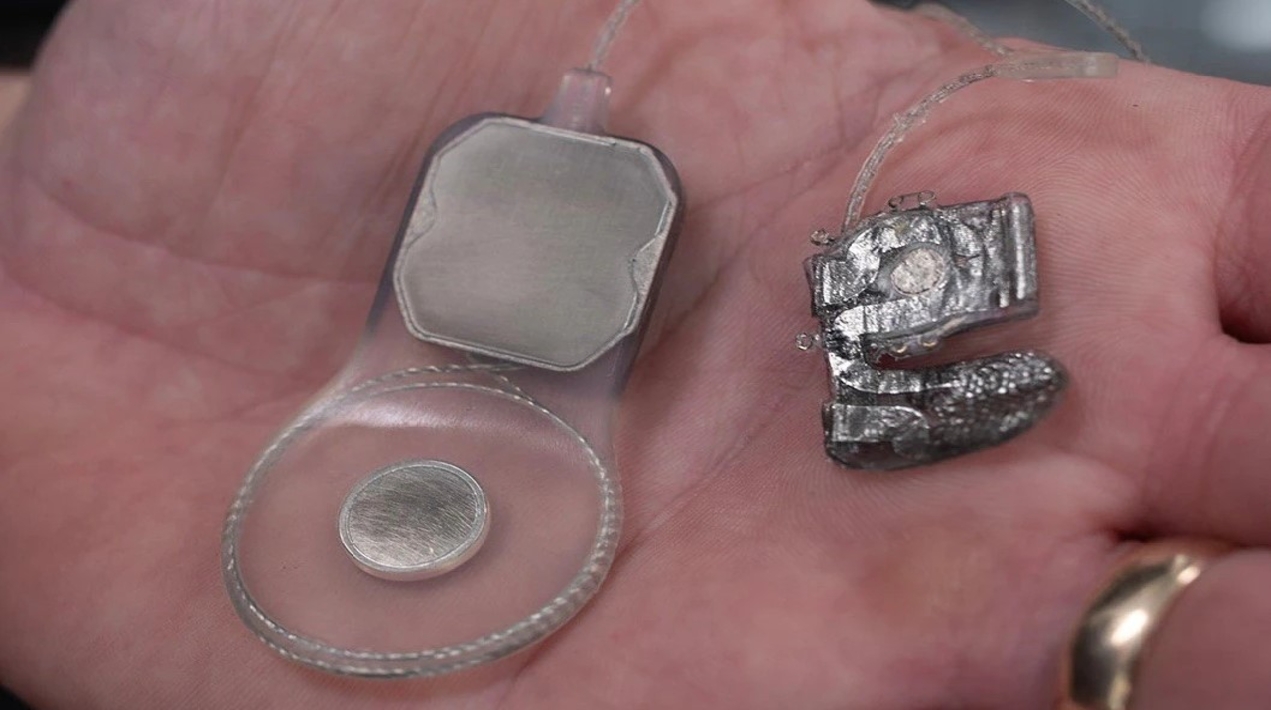
A bionic eye being developed by a team of biomedical researchers at the University of Sydney and UNSW has shown to be safe and stable for long-term implantation in a three-month study, paving the way towards human trials. The Phoenix99 Bionic Eye is an implantable system, designed to restore a form of vision to patients living with severe vision impairment and blindness caused by degenerative diseases, such as retinitis pigmentosa. The device has two main components which need to be implanted: a stimulator attached to the eye and a communication module positioned under the skin behind the ear.
Published in Biomaterials, the researchers used a sheep model to observe how the body responds and heals when implanted with the device, with the results allowing for further refinement of the surgical procedure. The biomedical research team is now confident the device could be trialled in human patients. The team will now apply for ethics approval to perform clinical trials in human patients, as they continue to develop and test advanced stimulation techniques.
The bionic eye works by stimulating the retina – a thin stack of neurones lining the back of the eye. In healthy eyes, the cells in one of the layers turn incoming light into electrical messages which are sent to the brain. In some retinal diseases, the cells responsible for this crucial conversion degenerate, causing vision impairment. The system bypasses these malfunctioning cells by stimulating the remaining cells directly, effectively tricking the brain into believing that light was sensed.
“Importantly, we found the device has a very low impact on the neurons required to ‘trick’ the brain. There were no unexpected reactions from the tissue around the device and we expect it could safely remain in place for many years,” said Samuel Eggenberger, a biomedical engineer who is completing his doctorate with the Head of School of Biomedical Engineering Professor Gregg Suaning.
The team is thrilled by the extraordinary result, which gives them the confidence to push on towards human trials of the device. It is hoped that through this technology, people living with profound vision loss from degenerative retinal disorders may be able to regain a useful sense of vision.
Professor Gregg Suaning said the positive results are a significant milestone for the bionic eye. He noted that the breakthrough comes from combining decades of experience and technological breakthroughs in the field of implantable electronics.
How the bionic eye works:
- A patient is implanted with the Phoenix99. A stimulator is positioned on the eye and a communication module is implanted behind the ear.
- A very small camera attached to glasses captures the visual scene in front of the wearer. The images are processed into a set of stimulation instructions.
- The instructions are sent wirelessly through the skin to the communication module of the prosthesis.
- The implant decodes the wireless signal and transfers the instructions to the stimulation module, which delivers electrical impulses to the neurons of the retina.
- The electrical impulses, delivered in patterns matching the images recorded by the camera, trigger neurons that forward the messages to the brain, where the signals are interpreted as a vision of the scene.
The researchers are in the process of seeking ethical approval for a human clinical study, as such, they are unable to recruit or accept expressions of interest at this time.
















